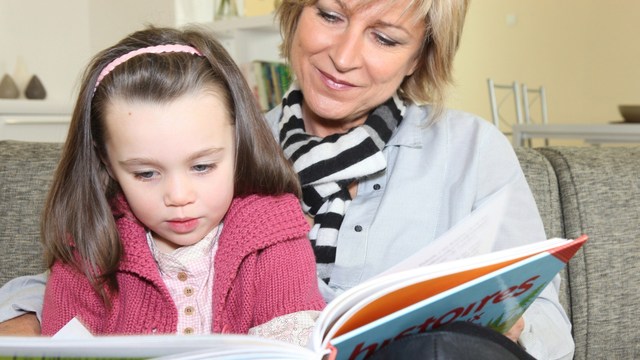 Auremar/PhotoSpin
Auremar/PhotoSpin
We hear plenty of reasons as to why being an older mom may be challenging. It can be difficult to get or stay pregnant, and there is an increased risk of birth defects. These are just a few of the possible difficulties older moms can face.
It is a pleasure to hear that being an older mom may have one distinct advantage. A new study has shown that moms who have children later in life were found to live longer -- a lot longer.
Women who had their last child at 33 years of age or older, had twice the odds of living over the age of 95 than moms who had their last child while under the age of 30.
This new study supports previous research that had shown that women who were over the age of 40 when they had a child, were four times as likely to live to 100 years than younger women, reported EurekAlert.org.
For the study, the researchers determined the age when 462 women had their last child and how old those women lived to be. There were 151 women who served as the control group.
The data was gathered from the Long Life Family Study (LLFS) and was published in Menopause: The Journal of the North American Menopause Society.
Thomas Perls M.D., M.P.H. is one of the study authors, as well as the director of the New England Centenarian Study (NECS), a principal investigator of the LLFS and a professor of medicine at Boston University School of Medicine (BUSM).
Perls said, “The age at last childbirth can be a rate of aging indicator. The natural ability to have a child at an older age likely indicates that a woman's reproductive system is aging slowly, and therefore so is the rest of her body."
He suggested that these women might have some type of gene variant that allows them to reproduce and bear children later in life. In addition, they maybe also be passing along longevity genes to their offspring.
"This possibility may be a clue as to why 85 percent of women live to 100 or more years while only 15 percent of men do."
The authors noted that based on various twin studies, genetics can only be attributed to about 20 percent of longevity. Environmental and behavioral factors such as smoking and exercise, may influence the likelihood of living to one’s mid-eighties, but when just looking at the extremes of old age, genetics plays a strong role.
Sources:
Extended Maternal Age Associated With Longevity by Beth Skwarecki. June 30, 2014. Retrieved July 6, 2014.
http://www.medscape.com/viewarticle/827552
Reproduction later in life is a marker for longevity in women. EurekAlert! Retrieved July 6, 2014.
http://www.eurekalert.org/pub_releases/2014-06/bumc-rli062414.php
Oh Baby! Women Giving Birth After Age 33 Tend To Live A Longer Life Than Women Who Gave Birth Before 30 By Shweta Iyer | Jun 25, 2014. Retrieved July 6, 2014.
http://www.medicaldaily.com/oh-baby-women-giving-birth-after-age-33-tend...
Sun, Fangui PhD et al. Extended maternal age at birth of last child and women's longevity in the Long Life Family Study. Menopause. 2014 Jun 23. [Epub ahead of print]
http://journals.lww.com/menopausejournal/Abstract/publishahead/Extended_...
Michele is an R.N. freelance writer with a special interest in woman’s healthcare and quality of care issues. Other articles by Michele are at http://contributor.yahoo.com/user/499625/michele_blacksberg.html
Edited by Jody Smith





Add a CommentComments
There are no comments yet. Be the first one and get the conversation started!